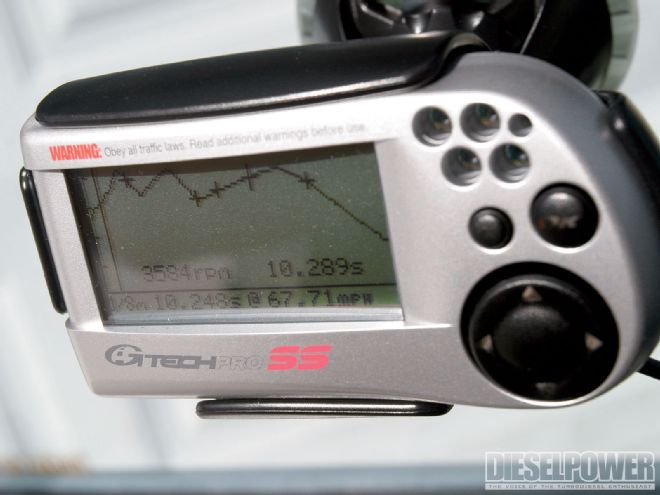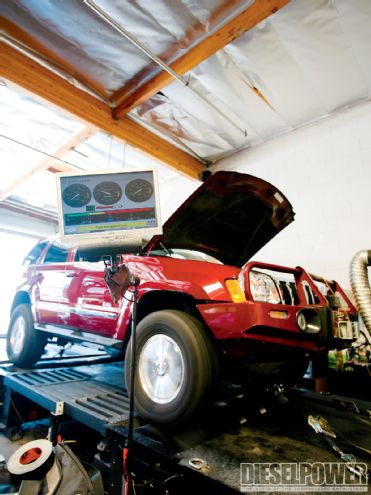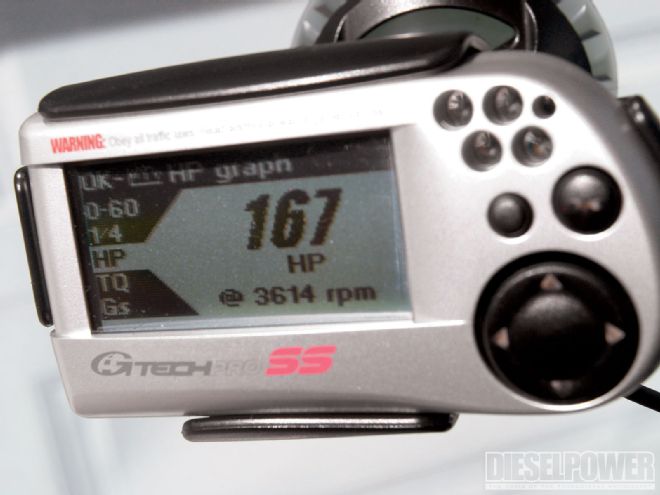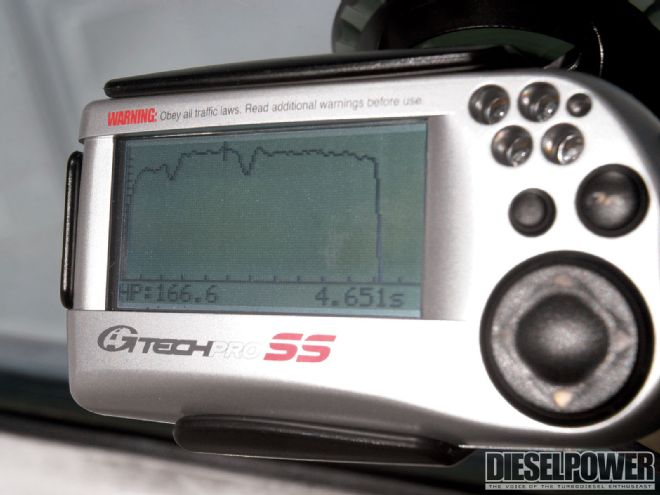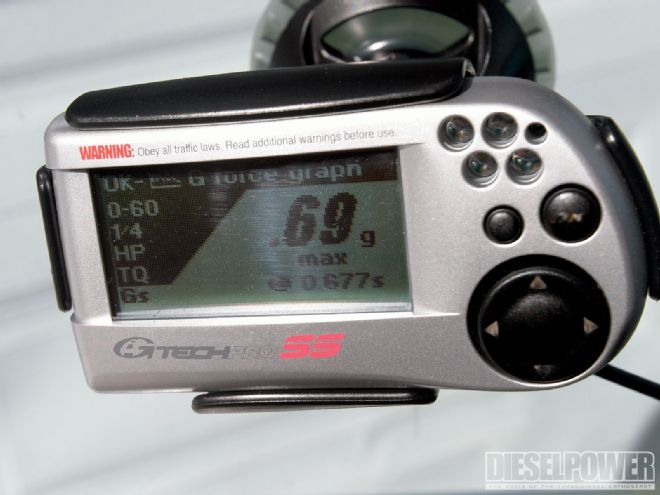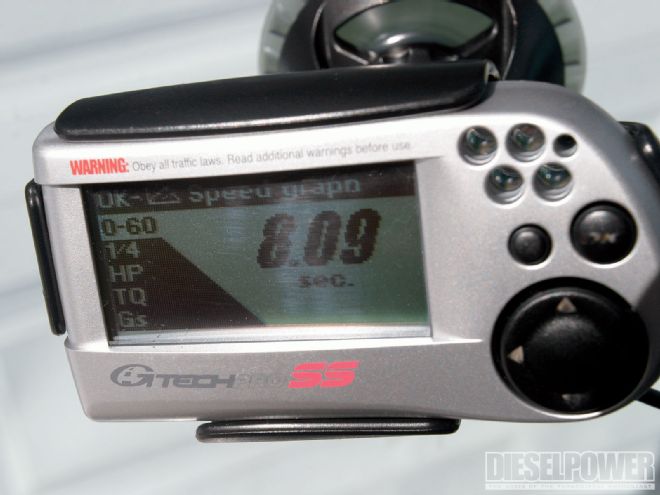So you've installed a new whiz-bang modification on your truck and it certainly feels faster, but how can you know for sure? Dyno tests and quarter-mile times are a good indicator, but how many of us own a dyno or dragstrip? It can take days, or weeks to line up a dyno day or test 'n' tune before you can test your truck. Wouldn't it be nice to get some hard, empirical data the very moment you've finished adding your last mod?

| diesel Power gtech Pro Ss Data Logger Test jeep Cherokee
Now you can with the GTech Pro SS. This small but powerful computer mounts right on your dash and can be used to measure horsepower, torque, 0-to-60-mph times, and 60-foot times (an indicator of traction). In addition to these basic capabilities, it also records eighth-mile and quarter-mile times and speeds and can even be programmed to record rpm through the harmonics of the alternator, so you can see the peak rpm before each shift.
Dragstrip vs. GTech For our test, we pitted the GTech Pro SS against the clocks at Irwindale Raceway, our local eighth-mile track. The test vehicle was our '08 Jeep Cherokee CRD, because we figured any errors in the GTech's measurements would be compounded by the high-G, all-wheel-drive launches. On our first run, the track timers revealed a 10.32-second elapsed time, while the GTech told us we ran a 10.04. Three tenths of a second seemed like too much of a discrepancy to us, so we looked for a reason. Since the Cherokee had high-rate coil springs in the front, it would unload the front suspension completely when it launched.

| Our best time in our diesel-powered Jeep Cherokee test vehicle at Irwindale's eighth-mile speedway was 10.22 seconds at 65.7 mph.
So we changed the GTech's pitch angle compensation factor (the average angle rise of the front end of the vehicle) from 2 degrees to 4 degrees. With the pitch angle set at 4 degrees, our next run was a 10.24 on the GTech, compared to a 10.22 on the track timers. Our final run was a 10.40 on the GTech, and a 10.36 according to the track. With the pitch angle changed, the GTech was accurate to within a few hundredths of a second, which is as close as we need it to be to evaluate the performance of our diesel upgrades.
Dyno vs. GTech
After the dragstrip, we took our results and pitted the GTech Pro SS against the chassis dyno at Yimi Sport in Santa Clarita, California. Because the GTech and chassis dynos calculate horsepower differently (see sidebar) we weren't looking for exact numbers, but rather the two readings to be within about 10 percent of each other.
When we got the horsepower reading from the GTech, it came in at 167 hp, compared to Yimi Sport's peak reading of 180 hp-a difference of 7 percent. Not bad, but again, there was more info to be had. After looking at the horsepower graphs on the GTech, we noticed there was no horsepower shift-indicating that the converter never locked up. An unlocked converter will sap horsepower, so we called Yimi Sport back, and it did indeed have one run in Third gear in which the converter never locked. The result? A reading of 164 hp-just 3 hp different than our dragstrip result.
In the coming months...
Since we performed our original test, the question we keep getting is "Your results are close, but does it still work on faster vehicles?" To answer that, we'll have to wait until we put the GTech on our 6.4L Project Godzilla, or make a nitrous run with Project Rust Bucket. When we get the results from a faster ride, we'll let you know in a future article and at DieselPowerMag.com.
Measuring Horsepower and Torque
A word of advice about using the GTech Pro SS to measure horsepower and torque: The information you receive will only be as good as your inputs! The GTech uses weight as a horsepower calculator, so make sure you get your truck's weight correct before you program it in. Perform your acceleration run at a low speed to reduce aerodynamic losses, but a high enough speed so traction is not an issue. Also, run your truck in one gear to avoid shift spikes, which can lead to erroneous readings. Finally, the numbers you get will not exactly match the dyno numbers. The GTech calculates rolling resistance and aerodynamic losses, which actually makes it more realistic than a stationary chassis dyno, although it can lead to lower numbers.
